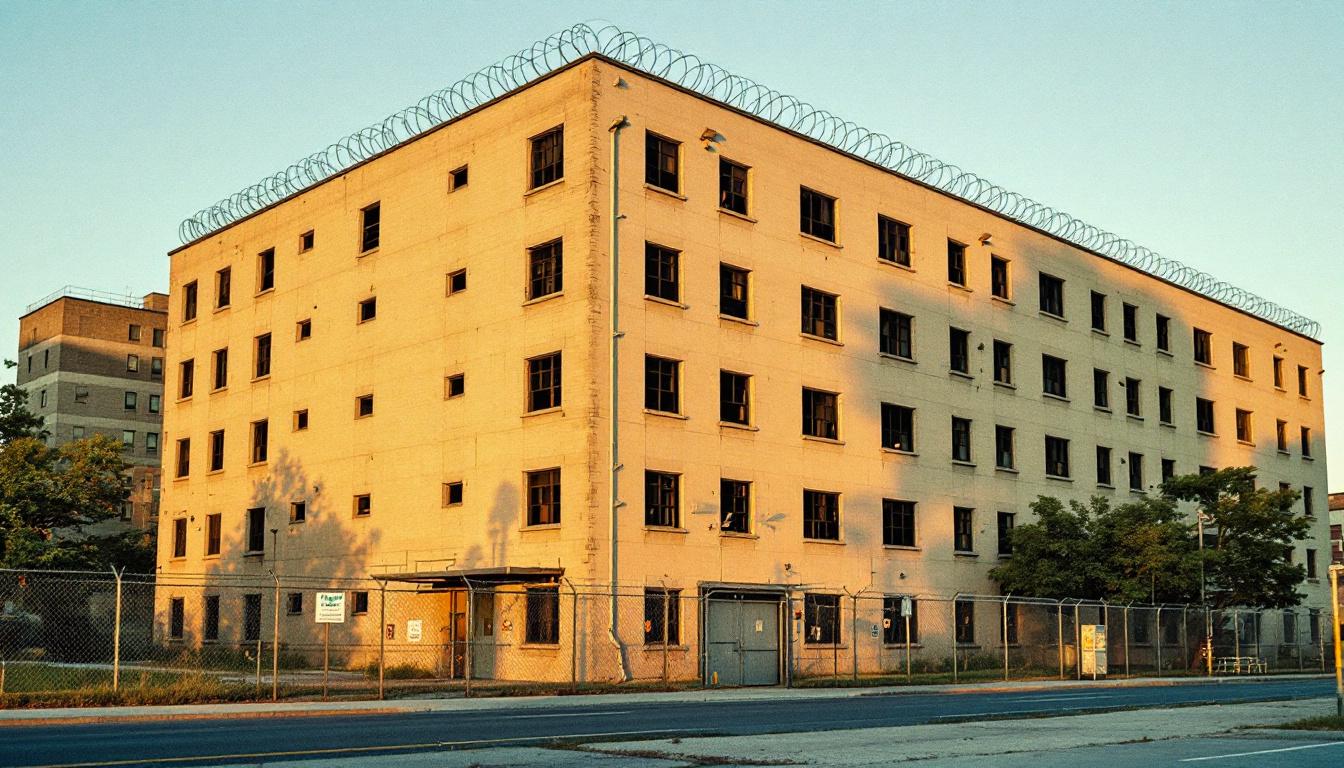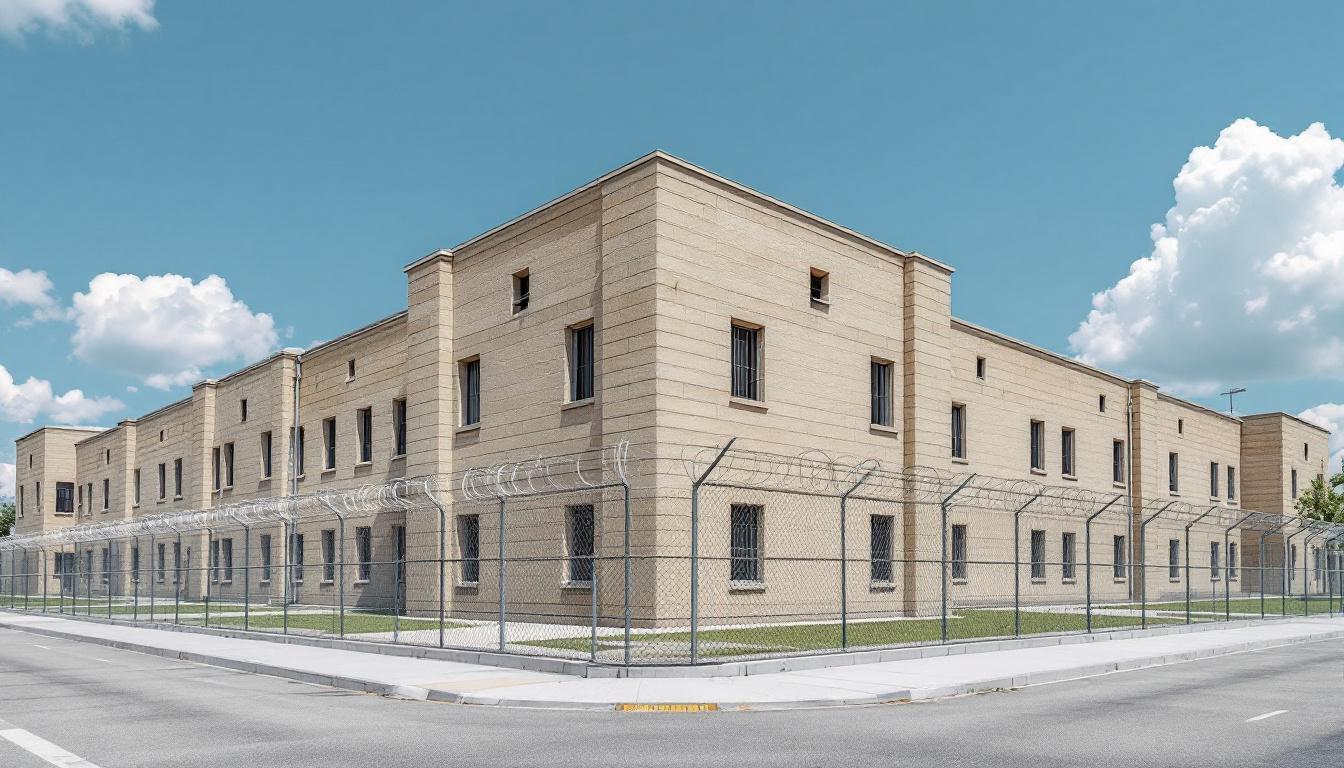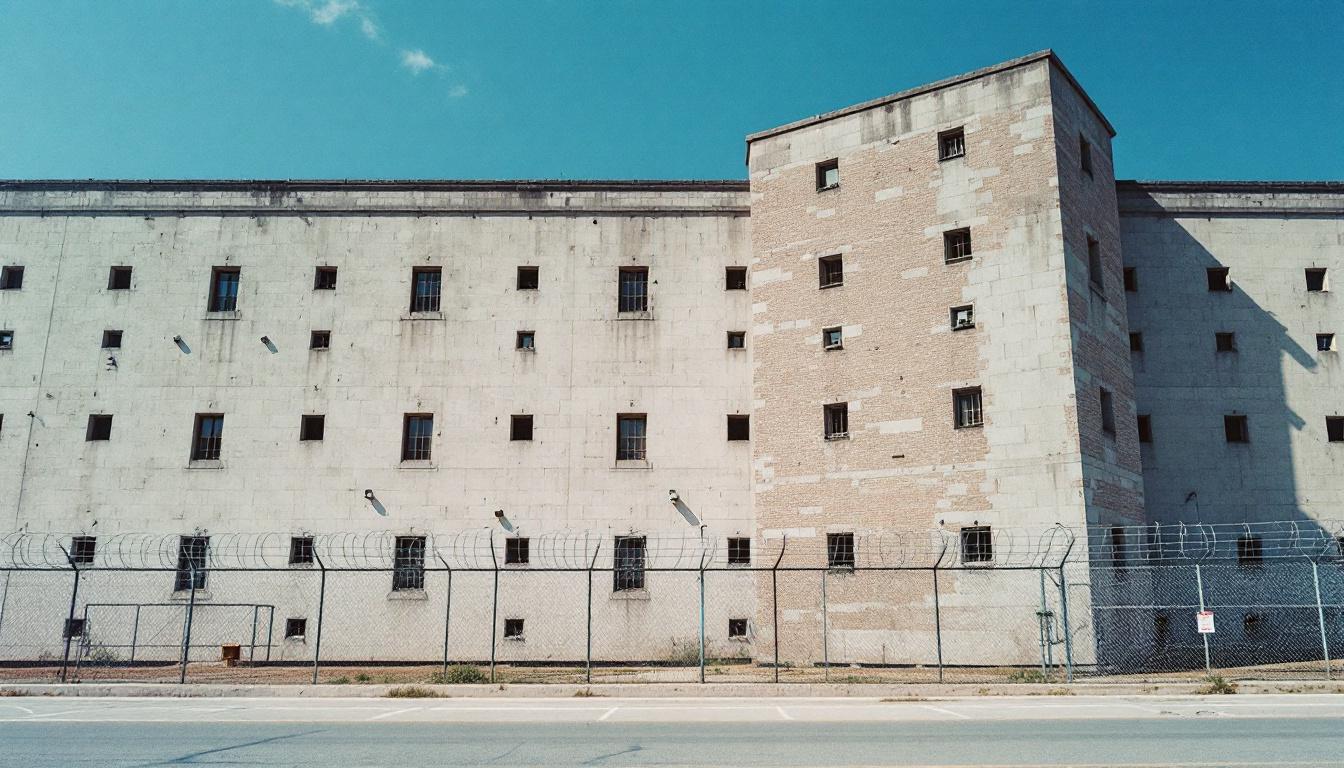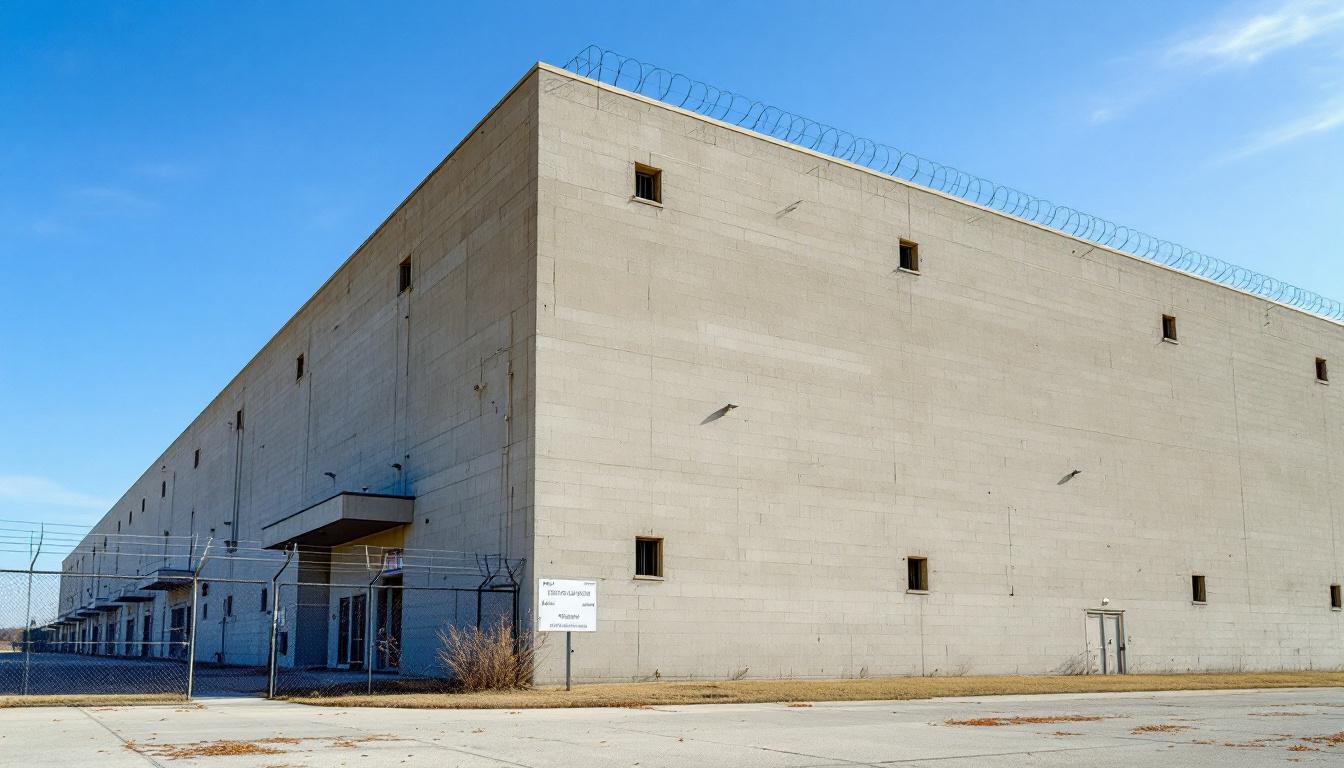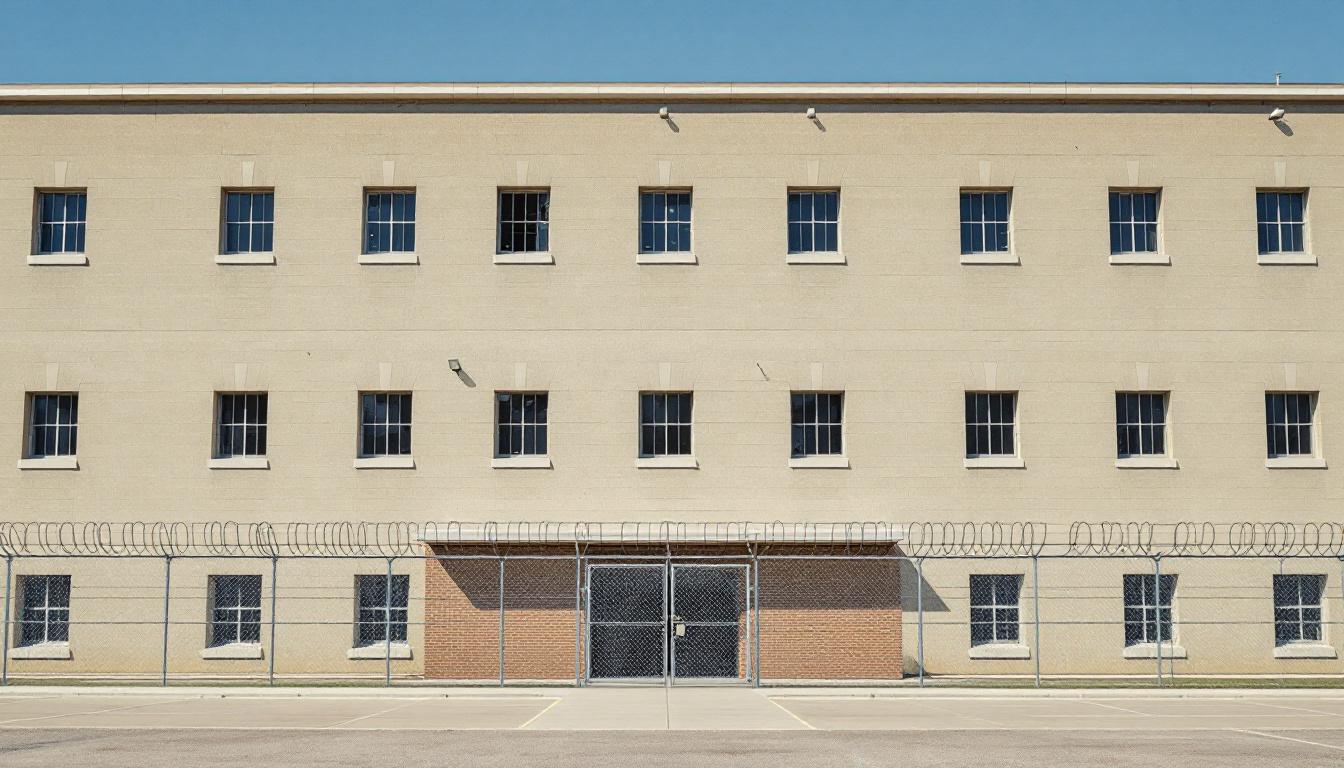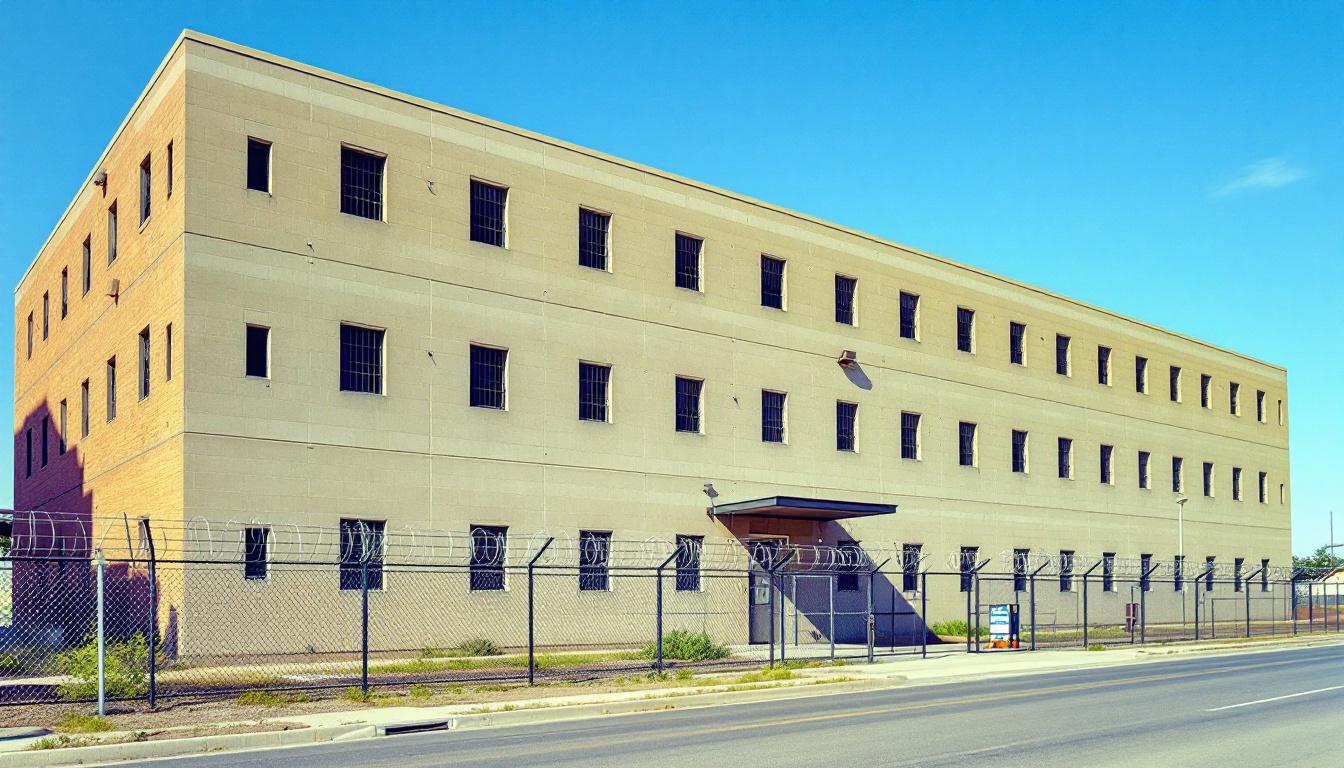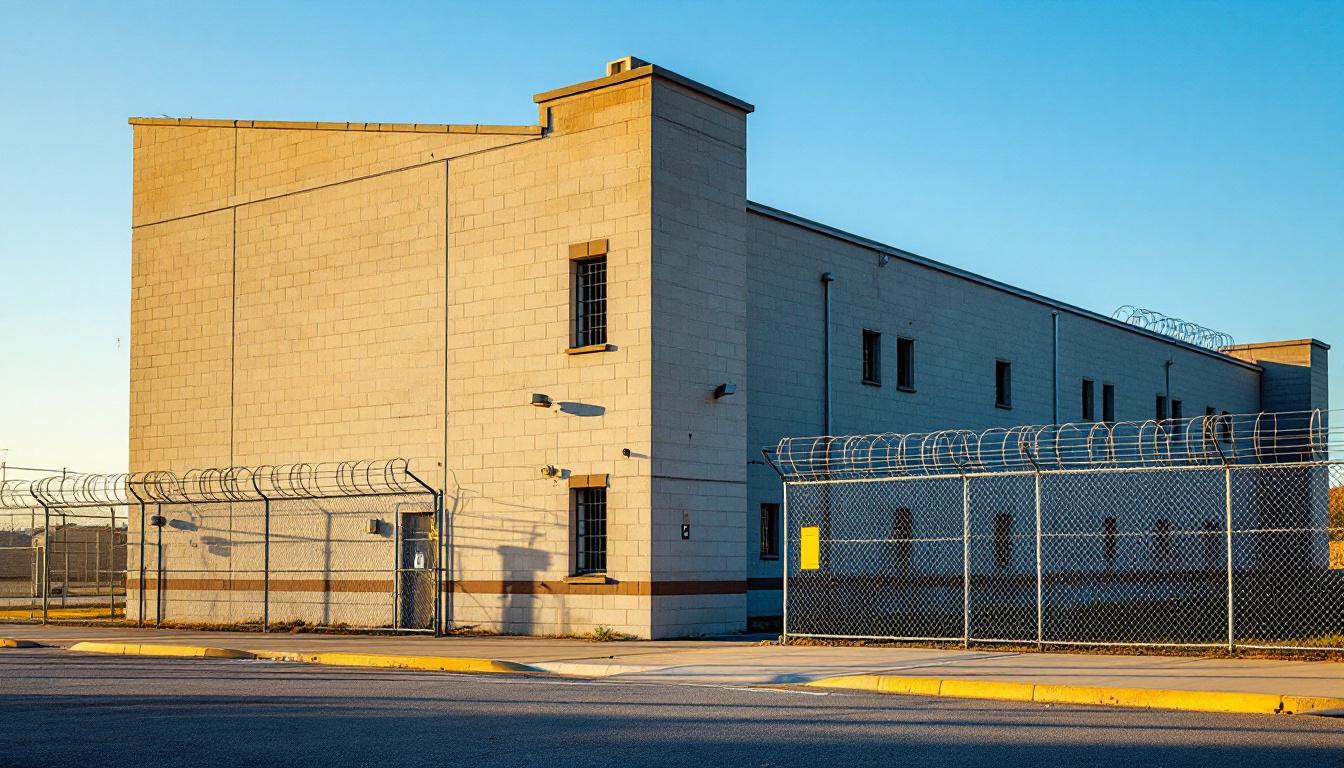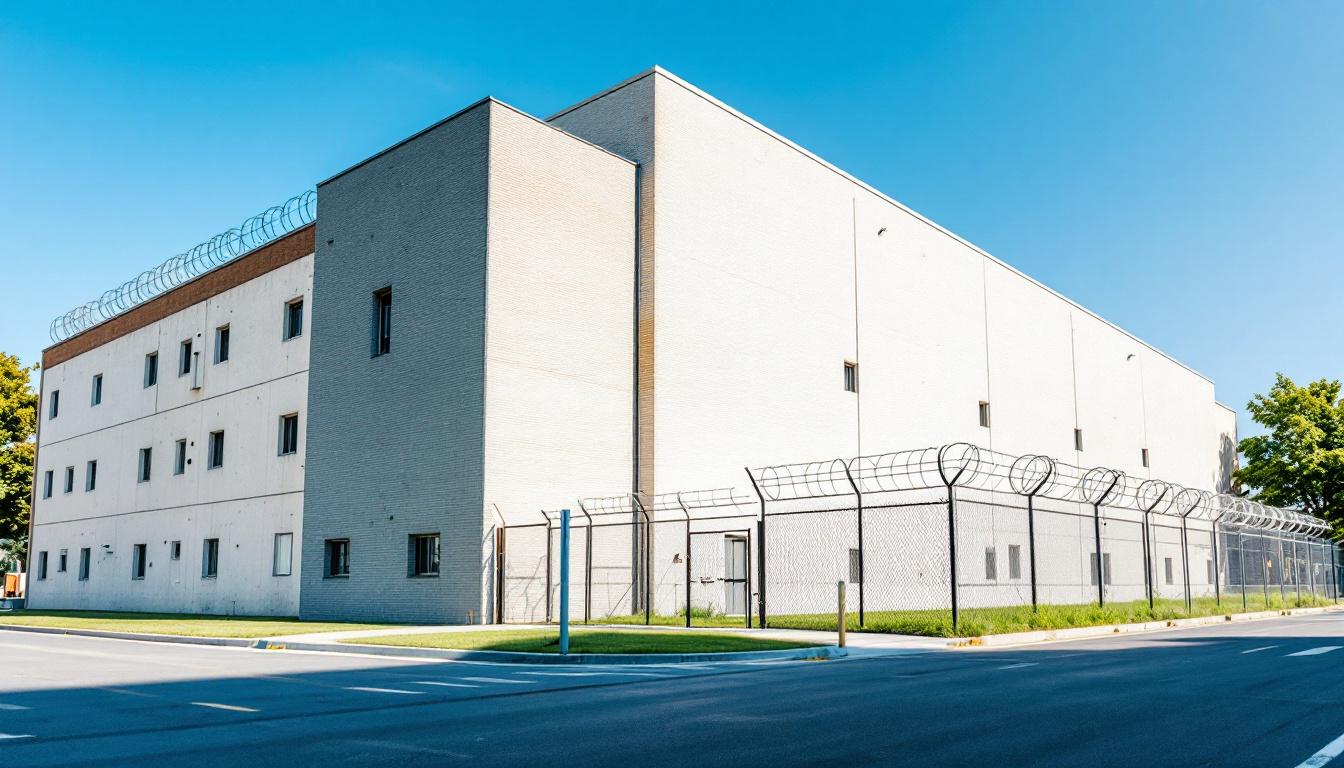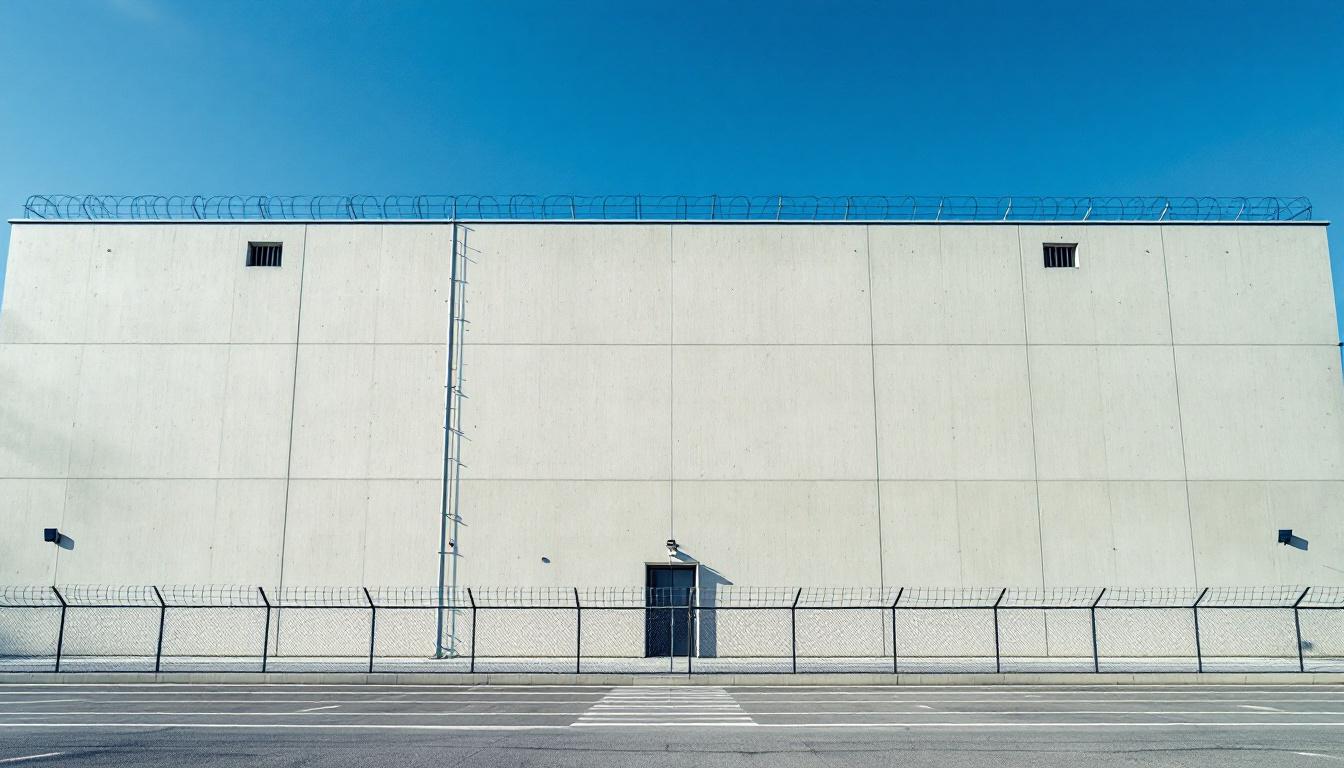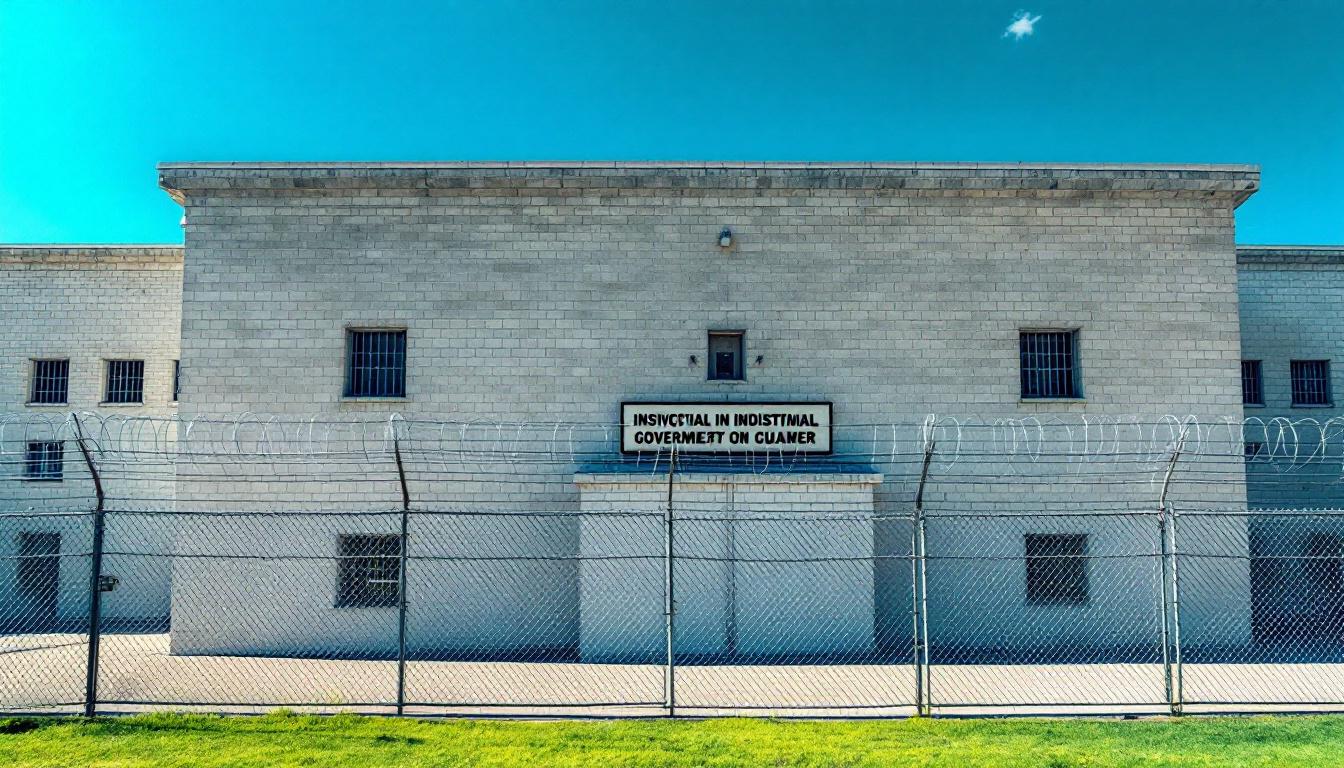
Quick Navigation
How to contact an inmate at Kingfisher County Sheriff’s Office
This comprehensive guide will walk you through how to connect with an inmate at Kingfisher County Sheriff’s Office. Follow the steps below to find an inmate and send letters and photos:
- Search for the inmate using our search tool below
- Create your account or log in to Penmate
- Write your message (up to 6,000 characters)
- Send instantly - inmates receive printed copies daily
Find an Inmate
Search for an inmate to start communicating today
Tip: You can search by first name, last name, or inmate ID number
To contact a person at Kingfisher County Sheriff’s Office start by searching for the person on the official facility website. Perform a search by following these steps:
- Step 1: Enter their first name and last name into the search form and click "Search"
- Step 2: Locate their inmate record
- Step 3: Write down their Inmate ID and any housing information provided
Important! Be sure to enter the person's full name. Nicknames should not be used.
How to Send Messages to Inmates

You can use your phone or computer to send emails, letters, and photos to an inmate. Messages are sent electronically to inmate tablets or kiosks at the facility. If you would like to send a message, start by searching for an inmate at Kingfisher County Sheriff’s Office.
Sending Photos and Postcards

A great way to send love and support to a loved one at Kingfisher County Sheriff’s Office is to send photos and postcards. It only takes a few minutes to send photos from your phone and it makes a huge difference. You can also mail postcards with words of support and inspiration, or design your own postcard for special moments like birthdays and holidays.
Important! Be sure not to send any explicit photos or they may not be approved by the facility. You can also use a photo printing app like Penmate to make sure your photos are printed at the correct size (4x6 or 3x5) and are mailed according to the rules and regulations of Kingfisher County Sheriff’s Office.
Frequently asked questions about Kingfisher County Sheriff’s Office
-
How long does it take to deliver a message?
If you're sending an email message your letter is usually delivered within 24-48 hours. For messages sent via mail you should expect delivery within 3-7 days. All messages will need be approved by Kingfisher County Sheriff’s Office.
-
How much does it cost to send a message to Kingfisher County Sheriff’s Office?
You can send a message free using your phone or mail a message via USPS for the price of a $0.60 stamp and envelope. You can also purchase credits or e-stamps from services starting at $1.99.
-
What services can I use to contact an inmate at Kingfisher County Sheriff’s Office?
Penmate
You can use Penmate to send letters and photos to an inmate from your phone. It's an easy way to stay in touch during your loved one's incarceration. Use the inmate locator to find an inmate's location and contact information, then you can send messages within a few minutes.
Securus messaging
Securus may be another option for communicating with an inmate at Kingfisher County Sheriff’s Office. You can create a friends and family account and purchase credits to send messages. All messages will be reviewed and must be approved by the facility.
JPay
Some county jails and state prisons may support sending messages with JPay. You must register an account with the system, find your loved one, and purchase stamps to send messages. For some locations you can also attach photos.
Smart Jail Mail
You may also check if Smart Jail Mail is available at Kingfisher County Sheriff’s Office. Smart Jail Mail is operated by Smart Communications and has contracted with some state and county jails. After purchasing credits, your messages and photos are sent to the facility, printed out, and then handed out to your loved one.
-
What is the mailing address of Kingfisher County Sheriff’s Office?
Mailing address:
Kingfisher County Sheriff’s Office
1001 Victory Rd
Kingfisher, OK 73750
Phone: (405) 375-4242Business hours:
- Monday: 8:00 AM – 5:00 PM
- Tuesday: 8:00 AM – 5:00 PM
- Wednesday: 8:00 AM – 5:00 PM
- Thursday: 8:00 AM – 5:00 PM
- Friday: 8:00 AM – 5:00 PM
- Saturday: Closed
- Sunday: Closed
-
What are the visiting hours at Kingfisher County Sheriff’s Office?
Visiting hours at Kingfisher County Sheriff’s Office vary by housing unit and security level. Generally, visits are scheduled on weekends and holidays, with some facilities offering weekday visits. Contact the facility directly at (405) 375-4242 or check their website for the current visiting schedule. Visits typically last 30-60 minutes and must be scheduled in advance.
-
What items are prohibited when sending mail to Kingfisher County Sheriff’s Office?
Prohibited items typically include: cash, personal checks, stamps, stickers, glitter, glue, tape, staples, paperclips, polaroid photos, musical or blank greeting cards, hardcover books, magazines with staples, and any items containing metal or electronics. Only send letters on plain white paper with blue or black ink. Photos must be printed on regular photo paper (no Polaroids). Always check with Kingfisher County Sheriff’s Office for their specific mail policies.
-
How do I send money to an inmate at Kingfisher County Sheriff’s Office?
You can send money to an inmate at Kingfisher County Sheriff’s Office through several methods: 1) Online using JPay, Access Corrections, or the facility's approved vendor, 2) Money orders mailed directly to the facility with the inmate's name and ID number, 3) Kiosks located in the facility lobby, or 4) Over the phone using a credit or debit card. Fees vary by method, typically ranging from $2.95 to $11.95 per transaction.
-
Can I schedule a video visit with an inmate at Kingfisher County Sheriff’s Office?
Many facilities now offer video visitation as an alternative to in-person visits. At Kingfisher County Sheriff’s Office, video visits may be available through services like Penmate, Securus Video Connect, GTL, or ICSolutions. Video visits typically cost $10-20 for 20-30 minutes and must be scheduled in advance. You'll need a computer or smartphone with a camera and reliable internet connection. Contact the facility for their specific video visitation policies and approved vendors.
-
What identification do I need to visit an inmate at Kingfisher County Sheriff’s Office?
All visitors must present valid government-issued photo identification such as a driver's license, state ID, passport, or military ID. Minors must be accompanied by a parent or legal guardian who can provide the minor's birth certificate. Some facilities require visitors to be on the inmate's approved visitation list, which may require a background check. Contact Kingfisher County Sheriff’s Office for specific ID requirements and visitor approval procedures.
-
How can I find out an inmate's release date?
To find an inmate's release date at Kingfisher County Sheriff’s Office, you can: 1) Use the online inmate search tool if available, 2) Call the facility's records department, 3) Contact the inmate's case manager or counselor, or 4) Have the inmate provide this information during a call or visit. For privacy reasons, some facilities only release this information to immediate family members.
Facility Overview
Contact Information
Kingfisher County Sheriff’s Office1001 Victory Rd
Kingfisher, OK 73750
Phone: (405) 375-4242
Official Website

About Kingfisher County Sheriff’s Office
Nestled in the heart of Kingfisher, Oklahoma, this county correctional facility serves as a cornerstone of the local justice system while maintaining strong connections to the surrounding community. The Kingfisher County Jail, OK operates within the broader network of the state's correctional infrastructure, typically housing individuals awaiting trial, serving shorter sentences, or participating in various court-ordered programs. As an OK correctional facility, it generally emphasizes maintaining safety and security while working to prepare residents for successful reintegration into the community through collaboration with local service providers and support organizations.
Community partnerships often play a vital role in the facility's approach to residents services, with programs that may include educational opportunities, substance abuse counseling, and job readiness training. The jail typically works alongside regional organizations to provide resources that address underlying issues contributing to criminal behavior, recognizing that effective rehabilitation often requires comprehensive support systems. These collaborative efforts generally focus on helping individuals develop practical skills and access ongoing support networks that extend beyond their time in custody.
Through its position in Kingfisher's civic landscape, the facility generally maintains connections with local faith-based organizations, educational institutions, and social service agencies that may offer various forms of assistance to residents and their families. This community-centered approach typically recognizes that successful outcomes often depend on bridging the gap between incarceration and community life, helping individuals access the tools and support they need to build stable, productive futures in the region.
Programs & Services
Rehabilitation-focused initiatives at this Oklahoma facility center on skill development and personal growth opportunities for residents. The comprehensive approach typically emphasizes practical education and meaningful engagement that may help individuals prepare for successful community reintegration. These initiatives often reflect a philosophy that combines accountability with constructive programming designed to address underlying factors that contribute to criminal behavior.
Educational initiatives may deliver basic literacy instruction, GED preparation, and adult learning opportunities that help residents complete their high school equivalency. Vocational training components often include hands-on skill development in areas such as construction trades, food service, or maintenance work that can lead to employment opportunities upon release. Moreover, these educational and vocational elements typically work together to provide residents with both foundational knowledge and practical abilities that employers often value in the community.
Support services frequently encompass faith-based initiatives that may offer spiritual guidance and counseling for interested residents. Volunteer initiatives often bring community members into the facility to provide mentorship, life skills instruction, and positive role modeling. Moreover, transitional planning services typically help residents develop reentry strategies, while animal care initiatives may provide therapeutic benefits and teach responsibility through caring for facility animals. These support elements often create a network of resources designed to address the social, emotional, and practical needs that residents may face during incarceration and upon release.
Daily Life & Visitation
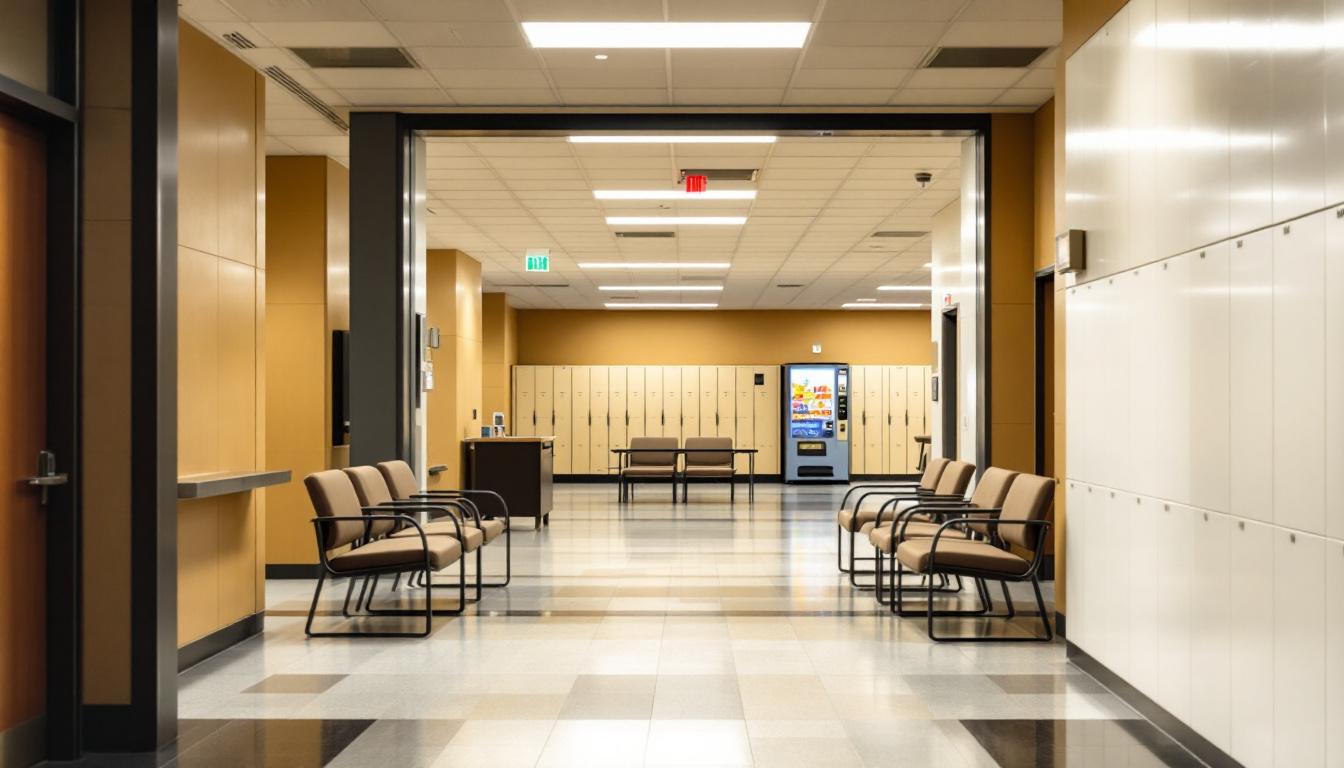
Structured routines form the backbone of daily operations, with residents following consistent schedules that deliver predictability and order. At present, the facility actively maintains regular wake-up times, meal periods, and designated hours for various activities throughout each day. Count times occur at regular intervals, ensuring accountability while residents typically engage in work assignments, educational programming, or recreational activities during designated periods.
Living accommodations generally consist of shared housing units where residents maintain personal sleeping areas and common spaces. The facility usually provides basic necessities including bedding, hygiene items, and storage for approved personal property. Meals are typically served in designated dining areas at scheduled times, with residents often having access to commissary services for additional food items and personal supplies. Moreover, the structured meal schedule helps establish routine while providing opportunities for social interaction within the resident population.
Programming schedules deliver various educational and vocational opportunities that may include literacy classes, job skills training, and substance abuse counseling. Recreation periods typically offer access to outdoor areas, indoor activities, and exercise equipment when available. Whereas daily routines provide structure, visitation policies generally allow residents to maintain family connections through scheduled visits and phone calls. Work assignments within the facility often include kitchen duties, maintenance tasks, and cleaning responsibilities that help residents develop job skills while contributing to facility operations.
Ready to Connect?
Start communicating with your loved one today
Search for an Inmate
